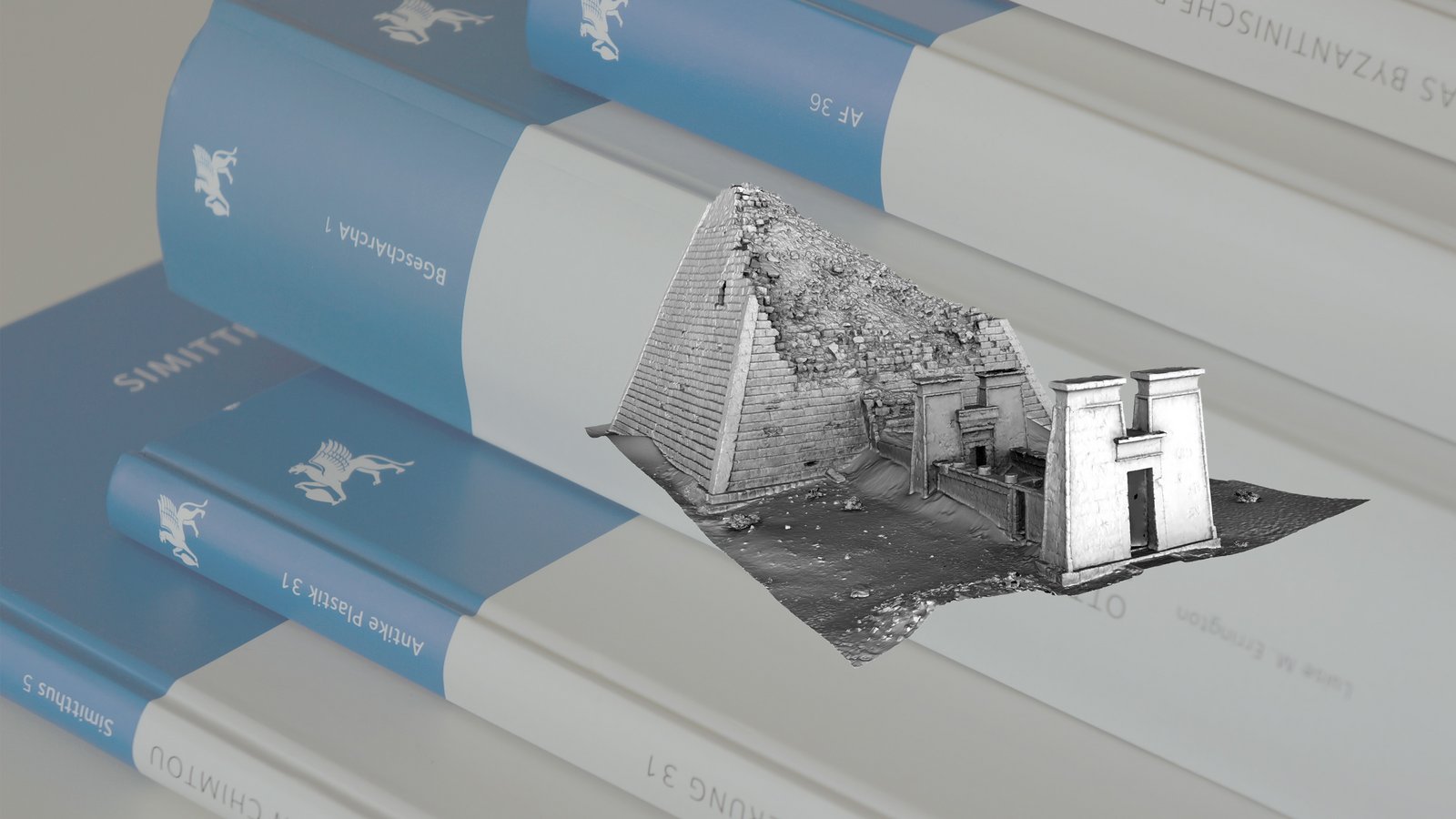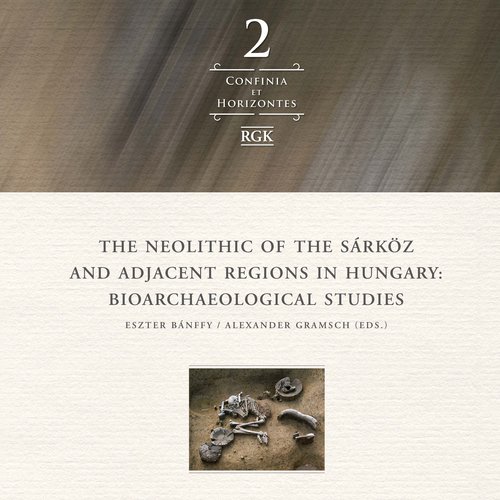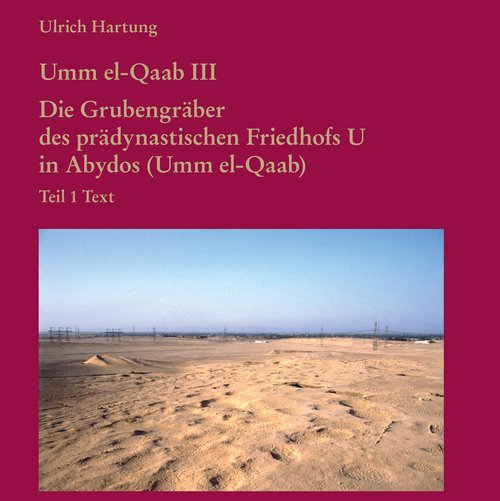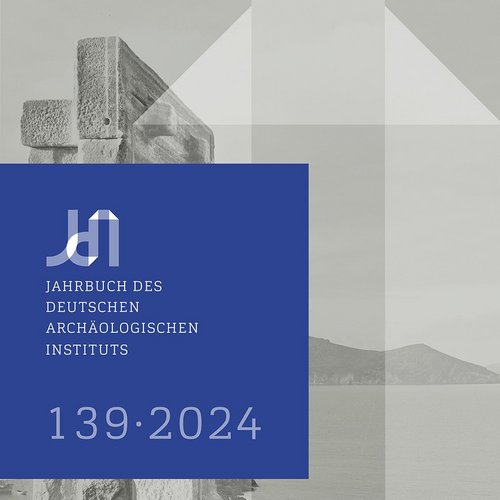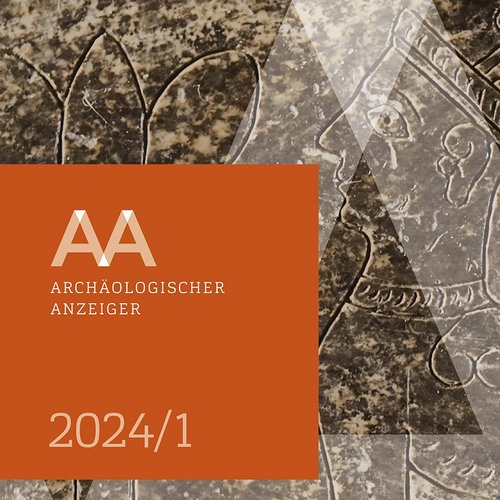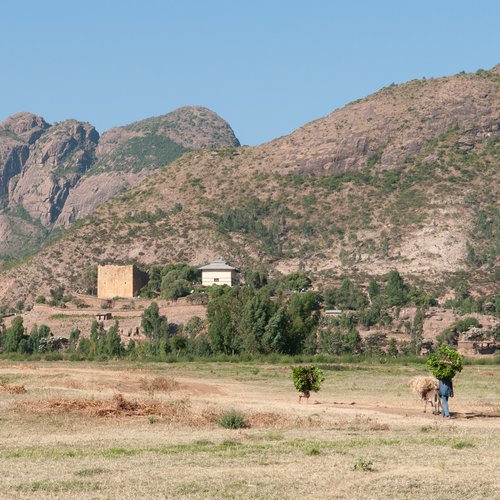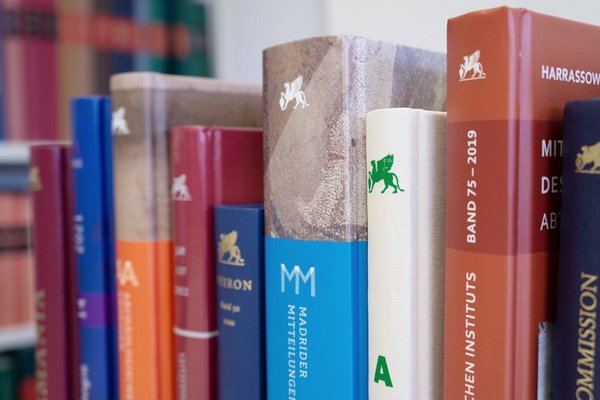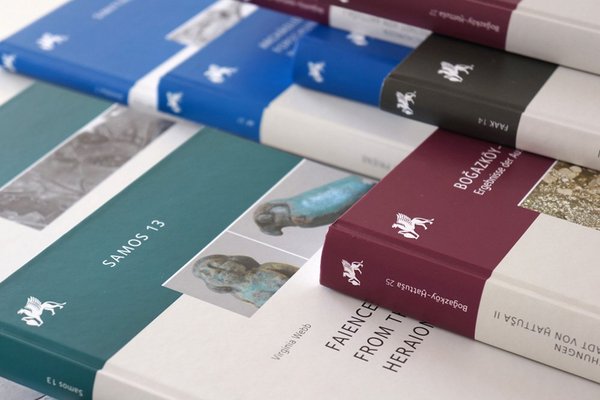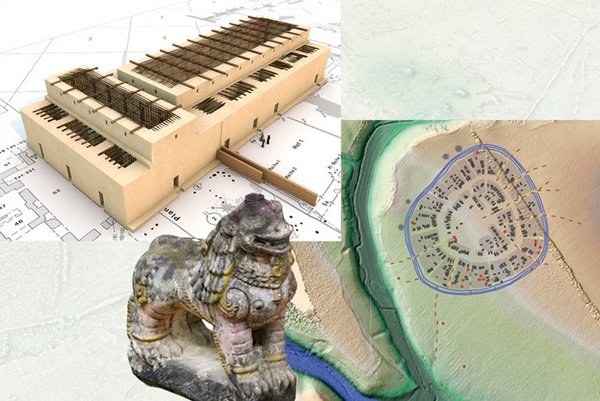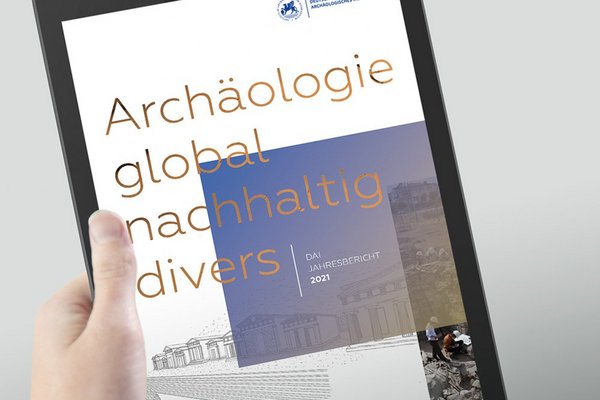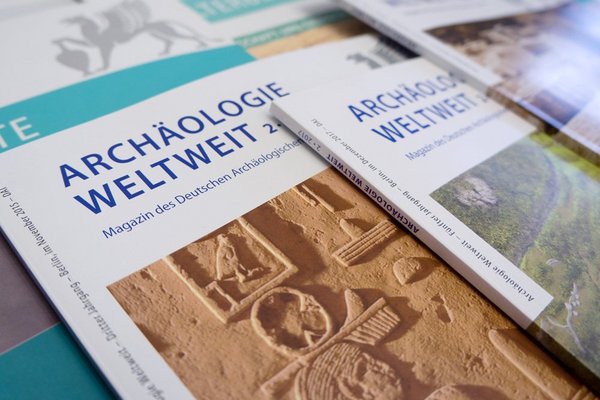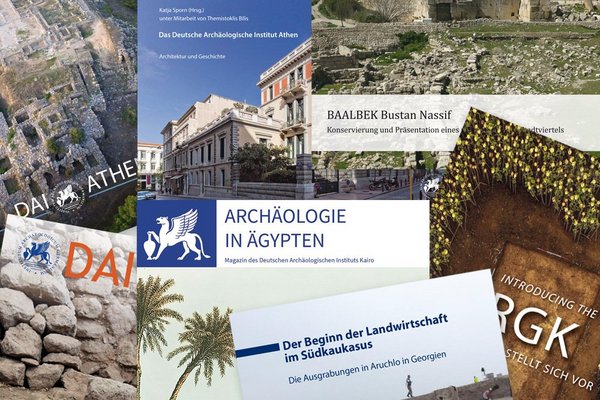Publishing the results from research
One of the main tasks of the DAI since the beginning has been to publish the results from archaeological and ancient studies projects. Its series and in particular its journals and data publications offer a platform for high-quality research carried out by scholars worldwide. The focus of the publications is widely spread through all areas of modern archaeology and the classical studies.
The DAI currently publishes 15 internationally renowned journals as well as about 70 subject-related series which, depending on the requirements, are published in either high-quality printed formats or readily available printing-on-demand editions, and parallel to this, in mostly online formats so as to meet all future standards for open access publishing.
The Research E-Papers appearing in 2-3 individual issues as well as the Annual E-Reports are intended for short notice reports about among others ongoing research projects and fieldwork. The reports and the therein presented findings are therefore highly topical and thus also greatly relevant for science communication.
Our Publication Formats
The DAI journals publish scholarly contributions by international authors regardless of whether the articles concern DAI projects. The criteria for publication are exclusively established by the contributions' scholarly significance as ensured by the practice of peer-reviewing. The DAI's series and monographs, on the other hand, typically contain reports on projects under DAI supervision or related to DAI projects. They usually appear in monographs, but also as collected works, congress reports, etc., which too are subject to standardised scholarly quality assurance processes.
Next to its classic manuscript publications, the DAI also supports the diffusion of all data ensuing from research in accordance with the requirements of the scholarly community and good scientific practice.
With its magazine Archaeology Worldwide appearing twice yearly, the DAI aims at reaching wider, but yet interested audiences. In addition to exciting reports from ongoing projects and current overarching topics, the magazine also cares to present DAI staff members and their roles. Brochures and special issues complement the portfolio of publications in the field of science communication.
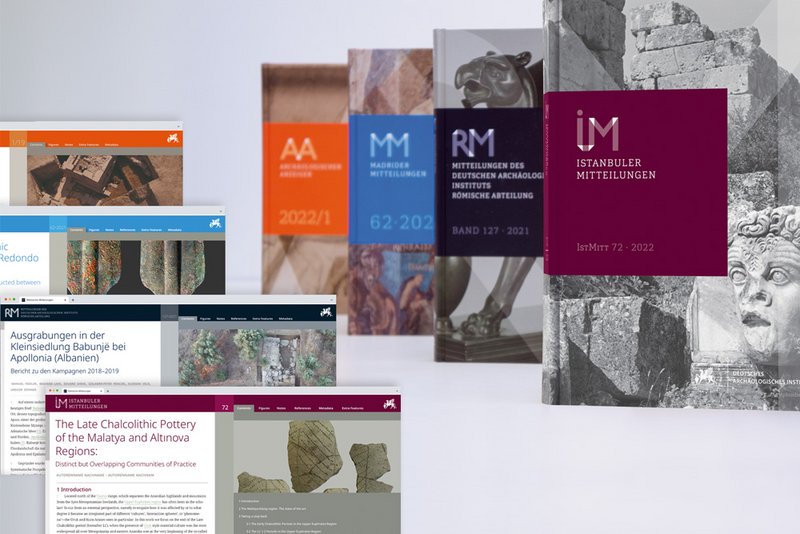
Die meisten DAI-Zeitschriften erscheinen zeitgleich online im Journal-Viewer-Format und als hochwertige gedruckte Ausgabe © DAI // Tanja Lemke-Mahdavi
Our Goals, Strategies, and Concepts
Our journals and series are set to continue to remain among the globe's most renowned publications in the field of international ancient studies. Open access, standardised procedures for scientific quality assurance through peer-reviewing, and high formal quality standards create the foundations for the DAI in its long-lasting role as a leading publisher of international scholarly debate.
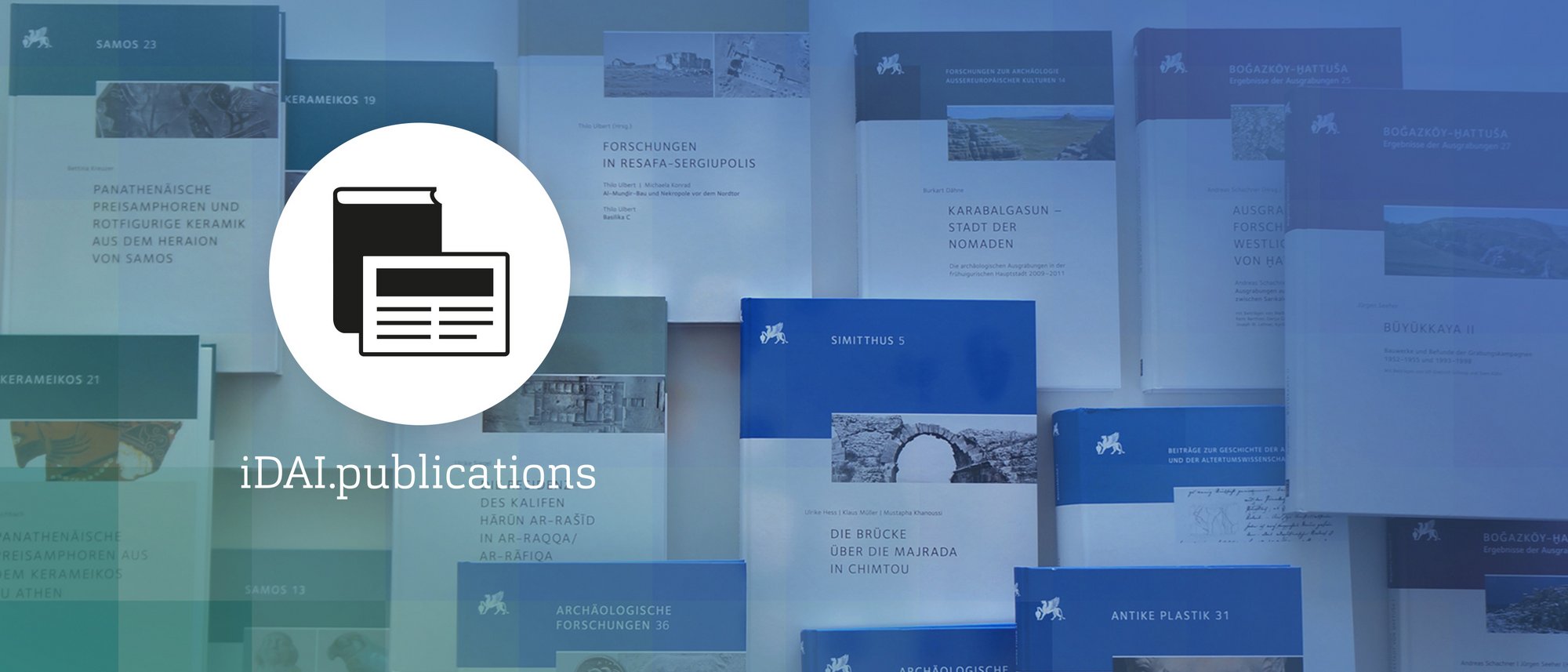
© DAI // Tanja Lemke-Mahdavi
Knowledge continually available
The publication platform iDAI.publications is an important constituent in the digital research landscape of the DAI, the iDAI.world. It provides free access worldwide to our online journals and the digital editions of a large number of DAI journals, monographs, series, and collected works.
Vernetzes Publizieren: Print und Online © DAI Z // Tanja Lemke-Mahdavi
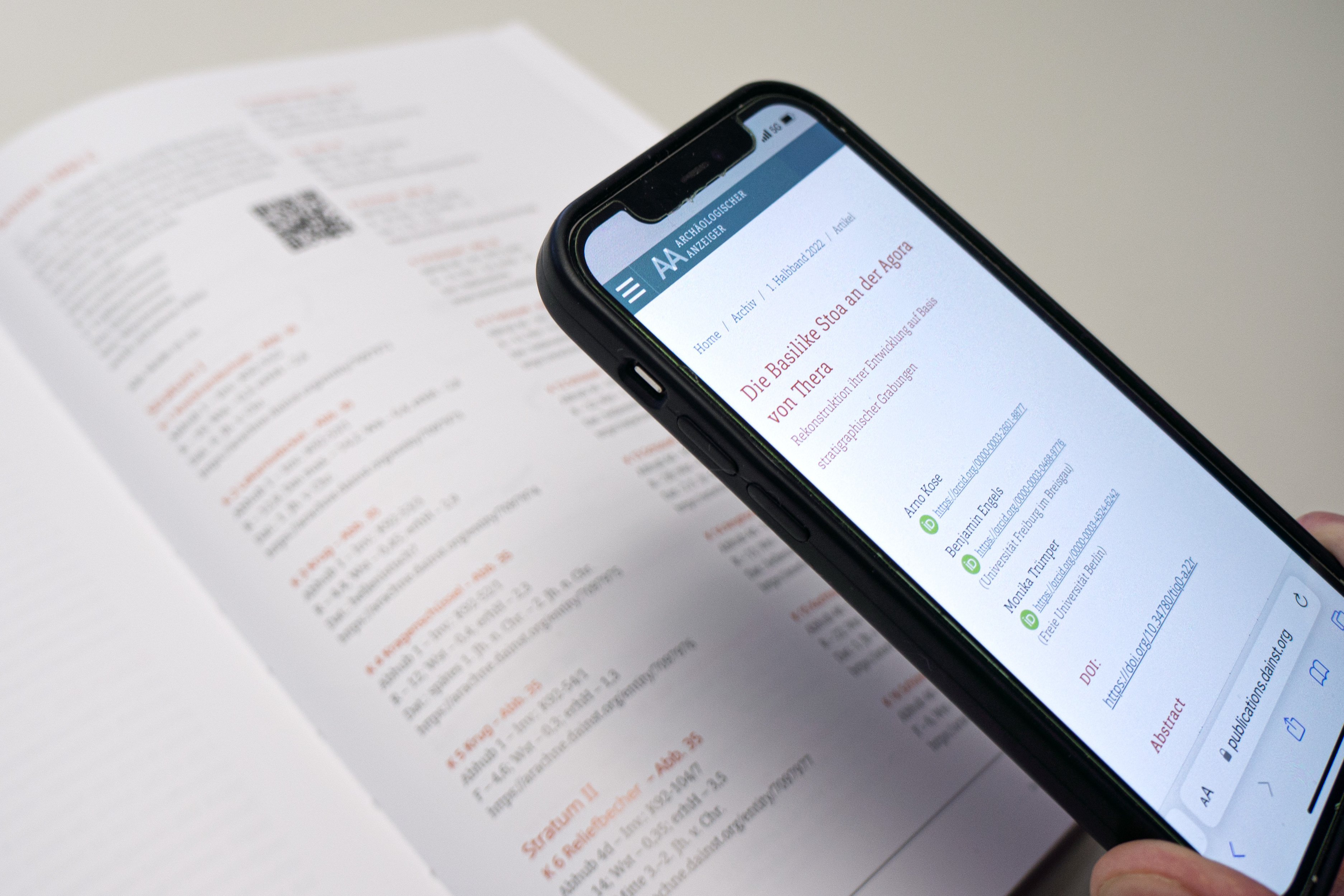
Publishing at the DAI
As a publisher, the DAI offers a platform for high-quality research carried out by colleagues from all over the world, especially through its journals, but also its series and data publications. The focus of the publications in all areas is on modern archaeology and classical studies.
© DAI // Tanja Lemke-Mahdavi
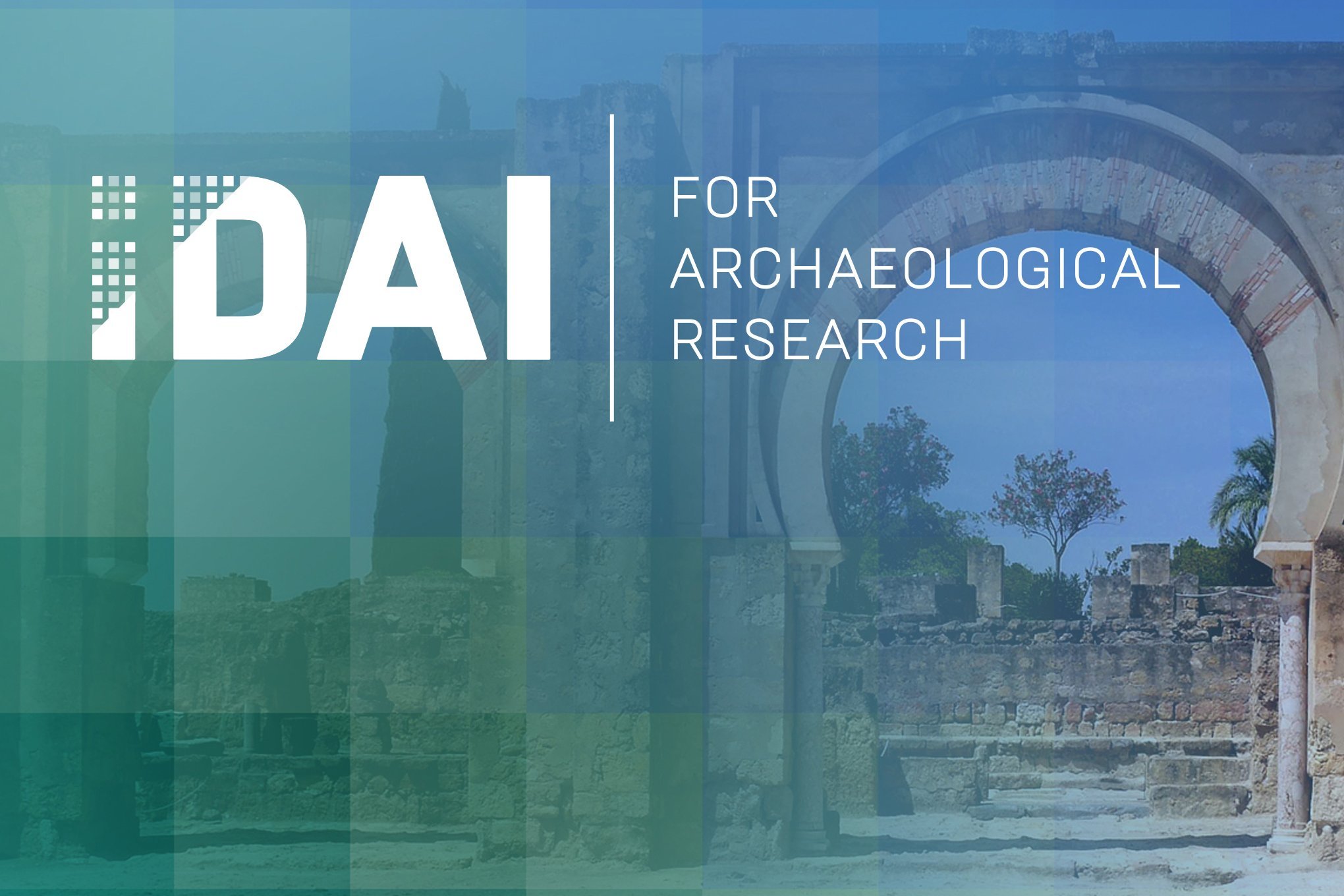
iDAI.WORLD
iDAI.world is a globally unique online infrastructure in the field of ancient studies. It includes extensive publication systems and longstanding digital knowledge repositories such as iDAI.objects (Arachne) established several decades ago, as well as authority data systems (iDAI.gazetteer, iDAI.chronontology), the modern geodata platform iDAI.geoserver, and directory systems such as the library catalogue ZENON.
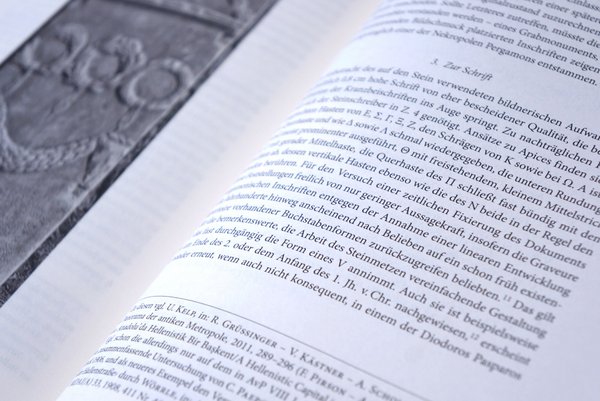
© DAI // Tanja Lemke-Mahdavi
Our editorial offices worldwide
Our departments and commissions respectively run their own editorial offices which are charged with the supervision of the publishing procedures in the relevant areas of work between the manuscript and the issued report. They adapt publication formats and concepts to current requirements and provide the contact persons for authors who aspire to publish their scholarly work at the DAI.
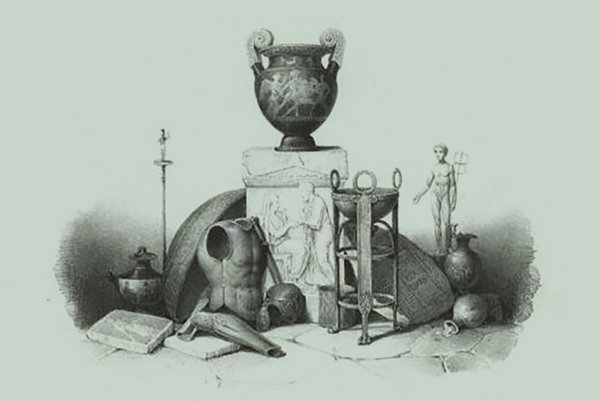
Zeichnung verschiedener Antiken auf dem Titelblatt der ersten Ausgabe der Monumenti inediti 1829 © DAI // Unbekannt
The history of our publications
With the Annali dell'Instituto di Corrispondenza Archeologica, the Bullettino degli Annali dell'Instituto di Corrispondenza Archeologica, and the Monumenti Inediti, which first appeared in 1829, the institute began its publishing activity already in the year of its foundation. The concepts of these three publication organs were not only ahead of their time, but they also proved ground-breaking for the institute's subsequent publication strategy.
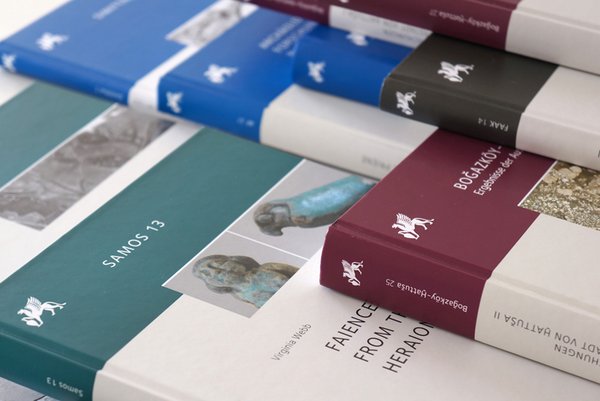
© DAI // Tanja Lemke-Mahdavi
Purchase of books and magazines
People wishing to purchase the DAI's scholarly publications are asked not to place their orders with the DAI. If the volumes are not freely available in iDAI.publications, they can only be purchased from booksellers. Before ordering any publication, check first which is the actual publishing house, as the journals and series often are not consistently produced by one publisher only.
More information on the responsible publishing houses can be found at the respective journals or series in iDAI.publications/journals or iDAI.publications/books.
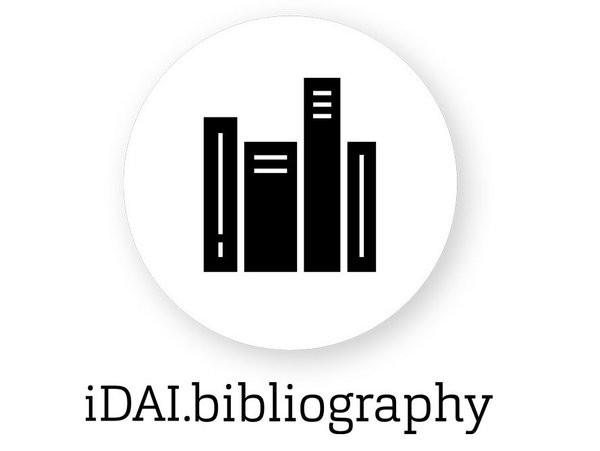
©
Our Central Library Directory
iDAI.bibliography/ZENON is the central directory of the libraries of the German Archaeological Institute. With its approximately 1.4 million bibliographic references, it is one of the world's best performing bibliographic reference instruments for ancient studies publications, including monographs, congress reports, collected works and journals, reviews, journals, map and archive materials, as well as e-resources from the field's entire spectrum of subjects.
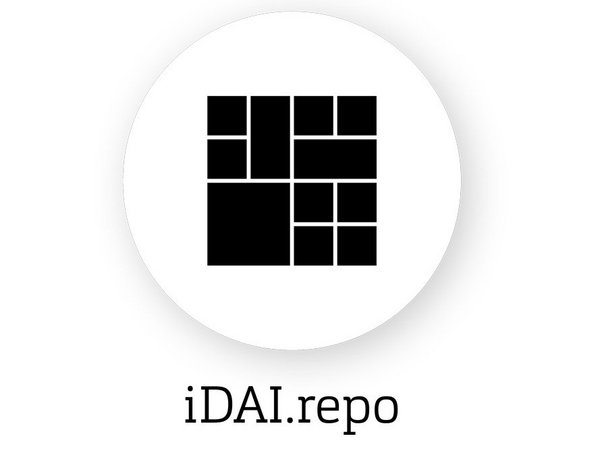
© DAI // T. Lemke-Mahdavi
iDAI.repo
iDAI.repo enables DAI staff and their project partners to share data without much effort or technical skills. The offer is complementary to the existing iDAI.world which proposes higher structuring degrees but which also requires higher efforts for data integration. In particular smaller research products and scientific data should be published in simple and transparent ways and be made available to other scholars.
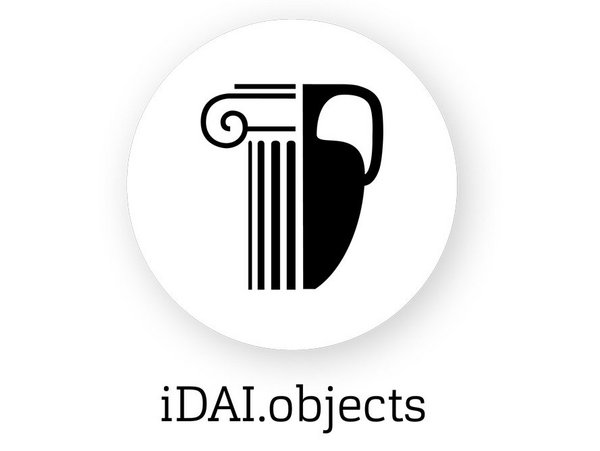
©
iDAI.objects
iDAI.objects arachne (in short: Arachne) is the central object database run by the DAI and the Institute of Archaeology at the University of Cologne. Reinhard Förtsch is the administer, and it is also part of the iDAI.world.
As a free tool for internet research for archaeology and classical studies, Arachne is intended to support rapid access to objects and contexts among hundreds of thousands of data sets.
